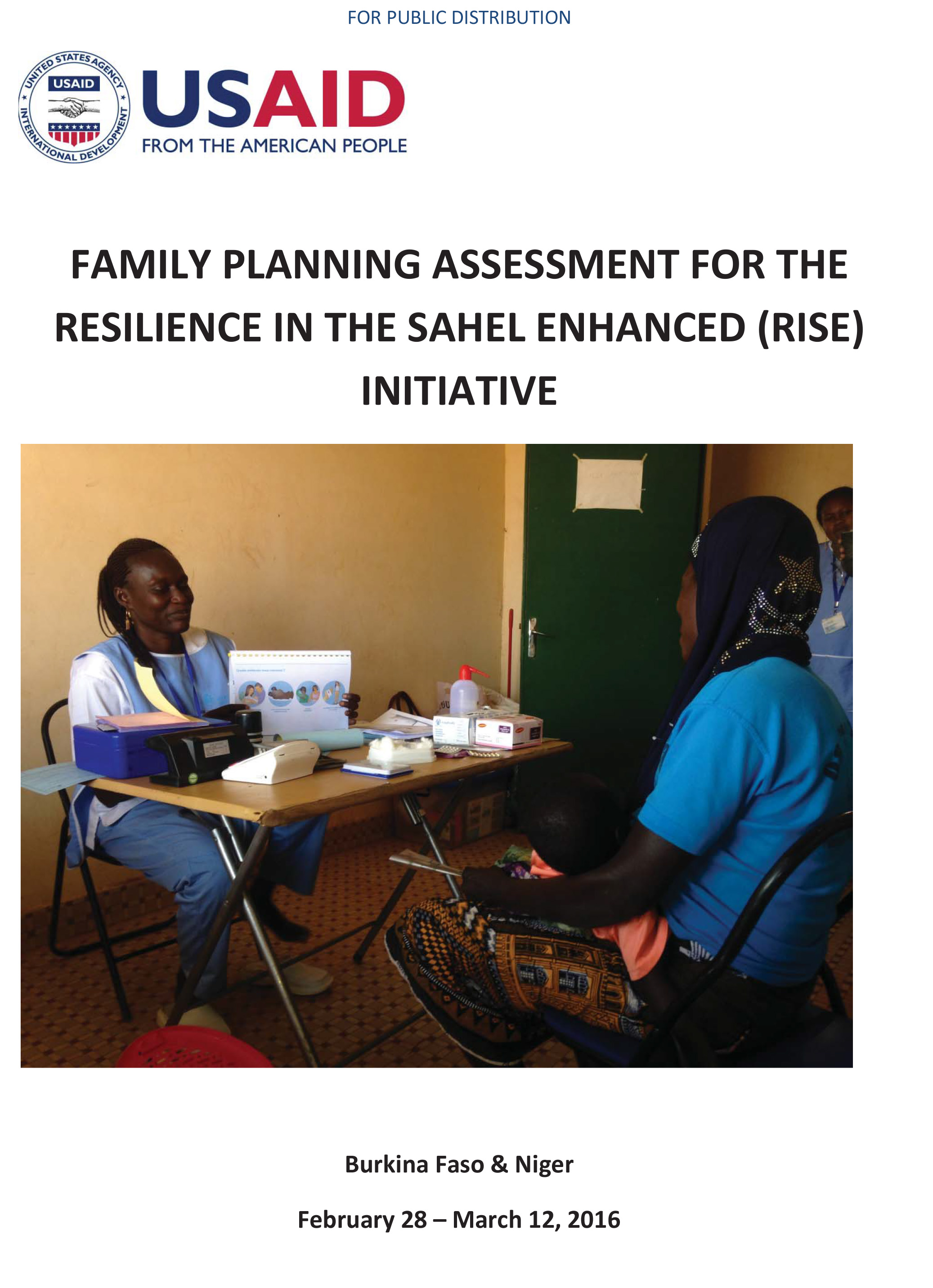USAID launched the RISE initiative in February 2014 to increase the resilience of chronically vulnerable households in targeted agro-pastoral and marginal agriculture zones in Niger and Burkina Faso (see Figure 1 for Map of the RISE Zone). RISE represents the totality of USAID’s humanitarian and development efforts to increase resilience by increasing economic well-being, strengthening governance and improving health and nutrition status.
Rapid population growth – the Sahel accounts for some of the highest fertility rates in the world – threatens to erode RISE’s resilience gains. However, these population issues were not adequately addressed in RISE’s design due to the initial lack of family planning (FP) funds and restrictions on the use of other funds to increase FP use. Where possible, USAID has linked its modest ongoing FP investments within and outside the RISE zone to its resilience programs. As the majority of these investments primarily target urban and peri-urban areas, supplying FP information and services in the rural RISE areas will present a unique set of challenges and opportunities.
Now, following advocacy from USAID/W and the Sahel Regional Office (SRO), USAID will program FP resources under RISE as of FY 2016. The USAID health experts supporting RISE are tasked with determining the most appropriate use of these resources to increase FP use within the RISE zone.








Comment
Make a general inquiry or suggest an improvement.